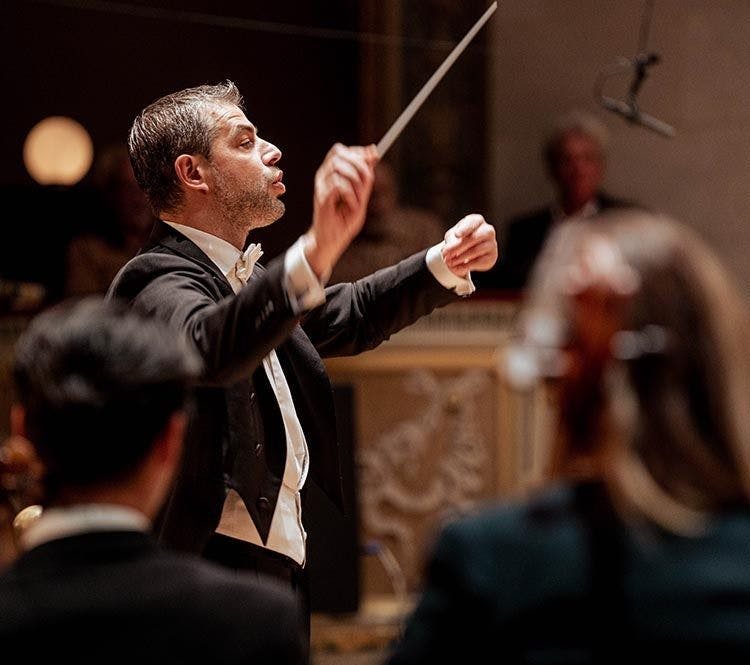MIND | THE | GAP: What is American? (2016)
Improvisations on Antonin Dvorák's "American" Quartet (Op. 96)
I. Allegro ma non troppo
Antonin Dvorák wrote his "American" Quartet during the summer of 1893 in the Czech enclave of Spillville, Iowa, following his first year directing the National Conservatory of Music of America in New York City. One of Dvorak's students at the Conservatory was the baritone and composer Harry T. Burleigh, who introduced him to Black spirituals, leading Dvorak to conclude that "The future of this country must be founded upon what are called the Negro melodies. This must be the real foundation of any serious and original school of composition to be developed in the United States."
This MIND | THE | GAP project weaves together excerpts of Dvorák's original score with improvisation in various styles, with the aim of connecting the Black and Indigenous musics that inspired Dvorák to the blues, jazz, rock, and hip hop styles that these traditions would ultimately inform. Incorporating various extended techniques, the work's opening also evokes the prairie soundscape that might have surrounded Dvorak as he composed.
MIND | THE | GAP: Pavement Pounding Rose (2019)
Improvisations on "Honeysuckle Rose" by Fats Waller
This piece is an excerpt from PUBLIQuartet's larger project Reflections on Beauty, which celebrates the life of Madam C.J. Walker, the pioneering Black entrepreneur, self-made millionaire, and activist. Inspired by Fats Waller's "Honeysuckle Rose," these improvisations evoke Madam Walker's entrepreneurial hustle in Harlem in the early years of the 20th Century.
Henry Threadgill - Sixfivetwo (2018)
Commissioned by Kronos Quartet as part of their *50 for the Future *project, Henry Threadgill's Sixfivetwo, a fifteen-minute work for string quartet, includes ample opportunities for players to improvise. "The improvisational component is very important," he said in an interview while describing his philosophy which guided the creation of this piece, "Kronos knows it's important and I know it's important. It's a shame that the classical concert world doesn't understand how important it is... Everything is about exploration. We get to where we are because of exploration. That's why improvisation is so important... We won't improve anything unless we have an improvisational approach to life." (excerpted from 50ftf.kronosquartet.org)
MIND | THE | GAP: Wild Women (2021)
Improvisations on music by Tina Turner, Betty Davis, Alice Coltrane, and Ida Cox
Inspired by Ida Cox's 1924 feminist blues anthem "Wild Women Don't Have the Blues," this MIND | THE | GAP also spotlights the work of Tina Turner ("Black Coffee"), Betty Davis ("They Say I'm Different"), and Alice Coltrane ("Er Ra"). In the spirit of Ida's lyrics, this set celebrates the legacy of independent women who hold their own.
Fodé Lassana Diabaté - Sunjata's Time (2015), arr. Jacob Garchik
Also commissioned by Kronos Quartet as part of their *50 for the Future *project, *Sunjata's Time *is dedicated to Sunjata Keita, the warrior prince who founded the great Mali Empire in 1235, which at its height stretched across the West African savannah to the Atlantic shores. Sunjata's legacy continues to be felt in many ways. During his time as emperor, he established many of the cultural norms that remain in practice today, including the close relationship between patron and musician that is the hallmark of so much music in Mali. The word "time" is meant to denote both "rhythm," an important element in balafon performance, and "epoch," since the composition sets out to evoke the kinds of musical sounds that might have been heard in Sunjata's time, drawing on older styles of balafon playing which Lassana Diabaté has learned while studying with elder masters of the instrument in Guinea. (excerpted from 50ftf.kronosquartet.org)
Rhiannon Giddens - At the Purchaser's Option (2016), arr. PUBLIQuartet (2021)
Inspired by an 1830s advertisement announcing the sale of a Black woman and her child, Rhiannon Giddens' "At the Purchaser's Option" is a meditation on the hard truths of American history; the song is reimagined here in an original arrangement by PQ that includes whispers, sung excerpts of Giddens' original lyrics, and various extended techniques.
Vijay Iyer - Dig The Say (2012)
I. carry the ball
IIa. this thing together
IIb. up from the ground
III. to live tomorrow
Commissioned by Brooklyn Rider in 2012, Vijay Iyer's Dig The Say is an homage to the "Godfather of Soul," James Brown. Describing his inspiration by Brown's music, Iyer says: "[...] of course it's best to enjoy it with your body and soul, but there is also much to learn from analyzing his music's interlocking bass, drums, guitar, horn, and vocal parts. As a composer and bandleader, I have strived for years to put some of his tactics into practice. He brought a lot of ideas to the table about groove, communication, form, and space. Each song has its own vivid and distinct identity, beginning with the intricacies in the rhythm section."
Much of the excitement and challenge of Iyer's quartet lies in his distribution of such intricate, driving rhythmic textures among multiple players; there are even moments where the score asks a single player to stomp or tap one rhythm while playing another. The titles of the work's four continuous movements refer to lyrics delivered emphatically by Brown in his 1969 song "I Don't Want Nobody to Give Me Nothing (Open Up the Door I'll Get It Myself)."




